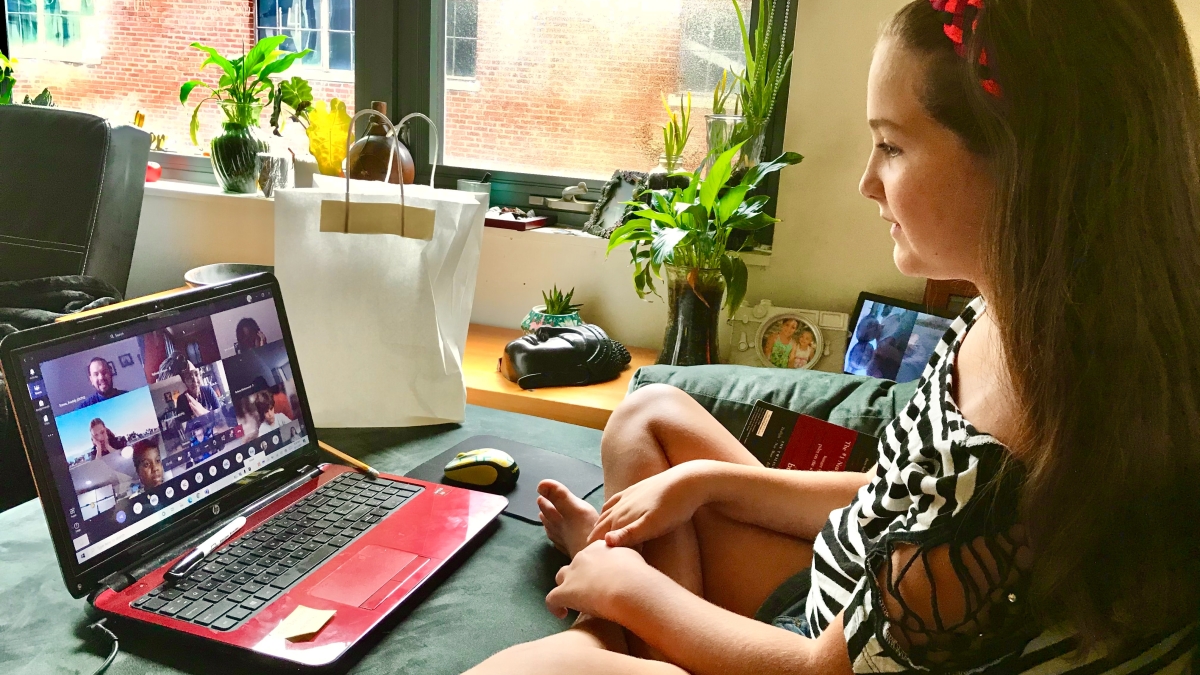Department of Psychology hosts summer camp to help kids develop coping, social skills

The Clinical Psychology Center in the ASU Department of Psychology is again offering its online summer camp starting this June. ASU’s Skills Program Inspiring and Reinforcing Excellence, or Camp ASPIRE for short, will use fun activities, interactive games and evidence-based approaches to teach healthy coping, social and life skills that will position students for success now and later in life.
The Clinical Psychology Center in the ASU Department of Psychology is again offering its online summer camp starting this June. ASU’s Skills Program Inspiring and Reinforcing Excellence, or Camp ASPIRE for short, will use fun activities, interactive games and evidence-based approaches to teach healthy coping, social and life skills that will position students for success now and later in life.
“We’ve had such a good experience with the ASPIRE summer skills camp over the last two years, and we are excited to be offering it again,” said Matthew Meier, associate clinical professor and the director of clinical training.
The program is delivered by clinical psychology doctoral students and is modeled on evidence-based prevention programs that have decades of research behind them. Camps are available for rising third through fifth graders and sixth through eighth graders. The younger group is based on the research done by Associate Professor Armando Pina’s Courage Lab, and the older group is based on Provost Nancy Gonzales’ Bridges Program. The Bridges program increases grades and confidence among teens while decreasing depressive and anxiety symptoms, discipline problems, school dropout and future alcohol use.
The Courage Lab is a research project that creates intervention programs for schools and community organizations to prevent and deal with anxiety and precursors to depression. The research has created offshoot programs, COMPASS for Courage and the HomeBound Initiative. COMPASS for Courage is a gamified social-emotional learning program to teach kids proven anxiety-management skills in schools, private practice or at home.
“This year, we are adapting the COMPASS for Courage intervention for the third- to fifth-grade age group. We have such exciting research being done in the department, and making this evidence-based program available to a broader audience is so important,” Meier said.
"By taking a strength-based approach that is positive and valued, the research done by the Courage Lab better serves children, adolescents and caregivers," Pina said. "One in five youth battle anxiety, and while anxiety is a normal emotion, some children and teens battle with high anxiety, worries and fears that don’t go away. This can often prevent them from achieving their goals, succeeding in school, making friends and facing their fears.”
Many students have struggled over the last two years to develop coping and social skills to help them deal with everyday stressors and build positive relationships. Camp ASPIRE provides a safe, game-based environment for children and adolescents to socialize, make new friends, set positive goals for the summer and beyond, while building on existing strengths. The camp does not provide psychotherapy and is not meant for treatment of mental disorders. Rather, it offers evidence-based prevention content that can help all students.
Camp runs for two weeks, meeting online for two hours on Mondays, Wednesdays and Fridays.
- June 6–17: 10 a.m.–noon OR 1–3 p.m.
- June 20–July 1: 10 a.m.–noon OR 1–3 p.m.
- July 11–22: 10 a.m.–noon OR 1–3 p.m.
The cost of the camp is $100 per student. A limited number of scholarships are available based on financial need.
“Our primary goal is to help kids have fun while learning new skills, but we are also hoping to help out parents. As a working parent myself, I need some structured activities for my kids this summer. I think this camp will be a big help for me and my children,” Meier said.
More Science and technology

ASU-led space telescope is ready to fly
The Star Planet Activity Research CubeSat, or SPARCS, a small space telescope that will monitor the flares and sunspot activity…

ASU at the heart of the state's revitalized microelectronics industry
A stronger local economy, more reliable technology, and a future where our computers and devices do the impossible: that’s the…

Breakthrough copper alloy achieves unprecedented high-temperature performance
A team of researchers from Arizona State University, the U.S. Army Research Laboratory, Lehigh University and Louisiana State…

